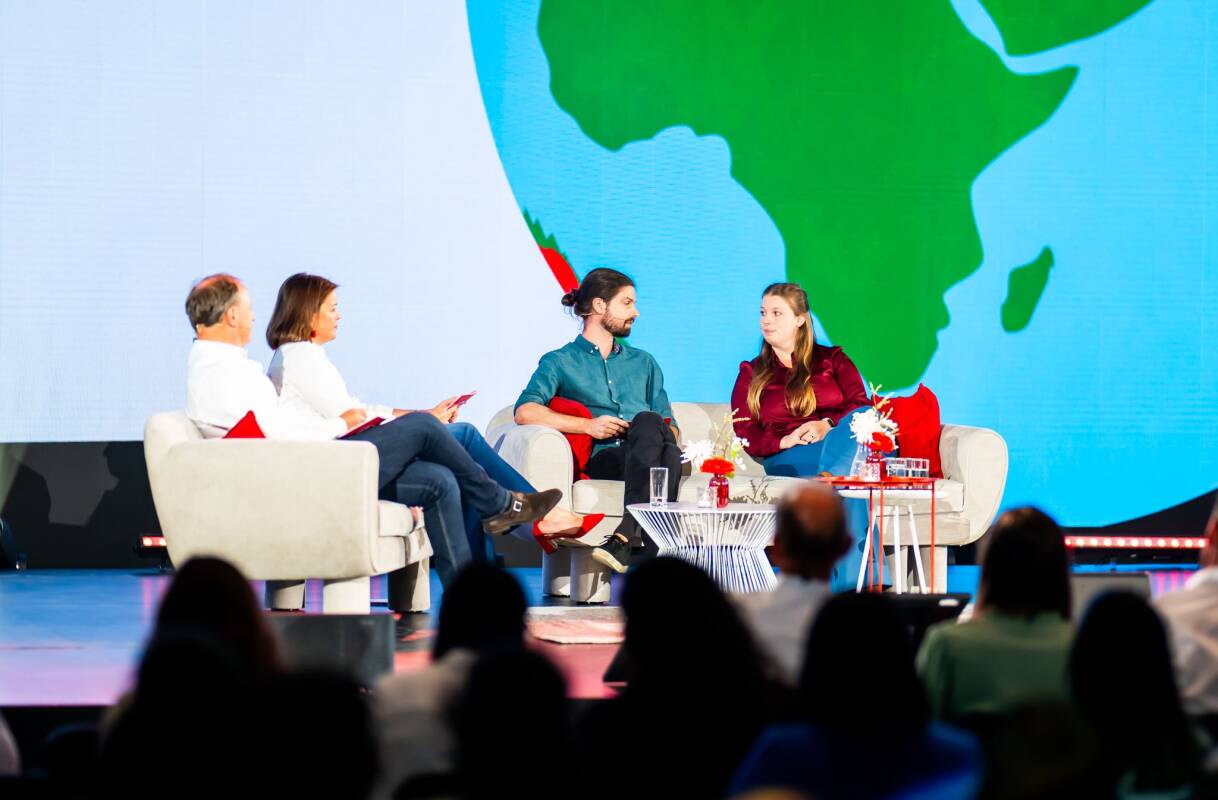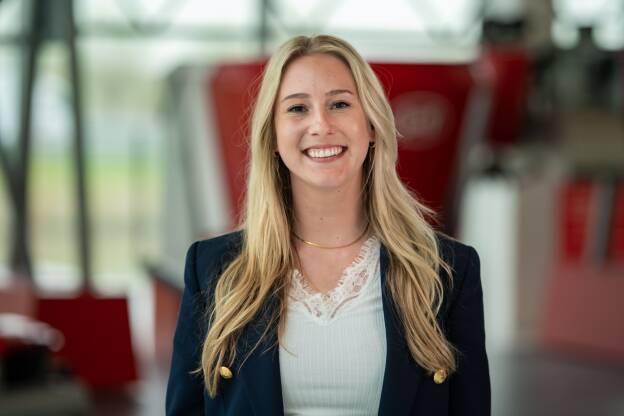
Rosita Grootscholten
Corporate Communications Specialist, Lely International
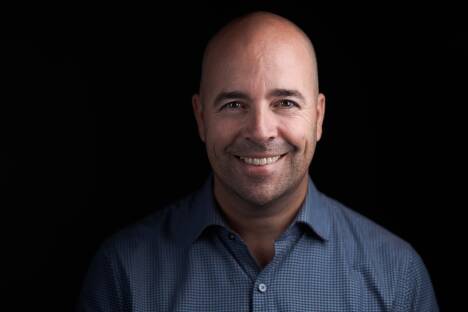
Danny de Kok
Project Manager IT, Lely International
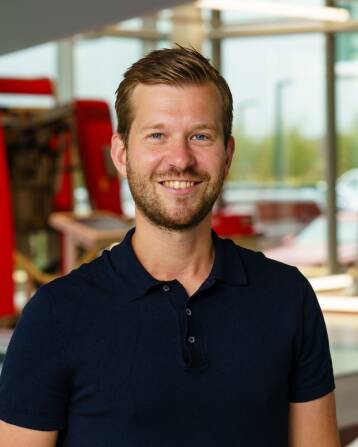
Kristian de Graaf
Financial Control & Analytics, Lely International
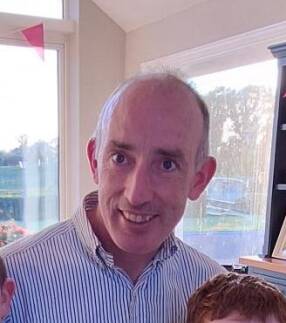
Thomas Nugent
Service Manager TSS, Cluster Atlantic
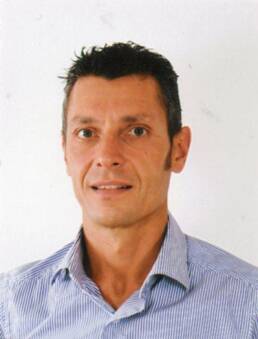
Gianluigi Ajelli
Manager DCD, Cluster SEET


Develop a succesful global organisation
'How will ESG impact our work as a global organisation?'
ESG refers to a set of criteria used to evaluate a company’s impact on the Environment, its Social responsibility, and its Governance practices. ESG has gained traction globally, and the European Union has pioneered the implementation of several policies.
In recent years, Lely has focused on various ESG topics, including circular design, waste reduction, energy efficiency, and employee health. We are also working on specific ESG commitments and targets that will be launched in 2025.
These will have a significant impact across pretty much all our competences, departments and teams worldwide. Initially, we will ask for data from our Clusters and Centers so that we can make the relevant calculations. After analysing the findings, we will make suggestions and requests, such as to reduce CO2 emissions by sourcing green energy or installing solar panels. Additionally, data and activities related to employee health & safety will play a crucial role in the coming period.
Our customers will notice our focus on ESG as well, because we aim to reduce waste and stimulate reuse of materials, parts and whole goods.
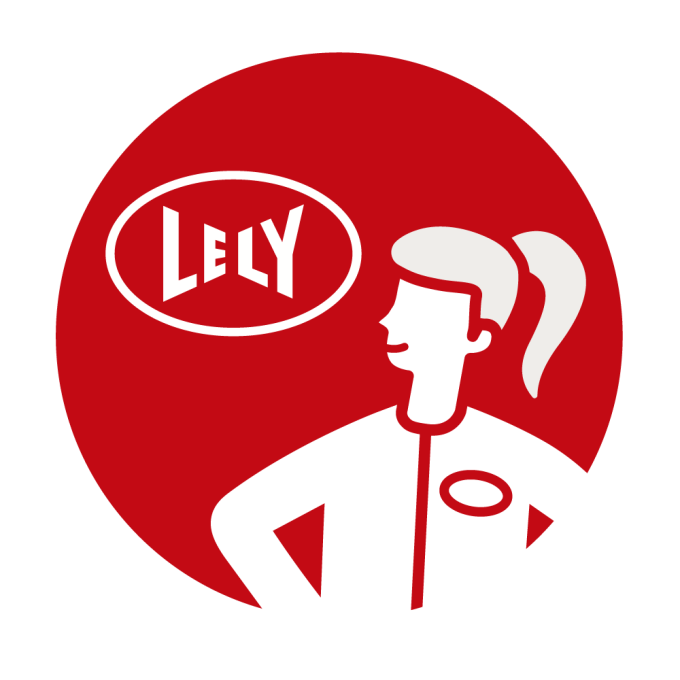
Deliver a unique customer experience
'How can we maintain personal interactions with farmers and Lely Centers as digitalization and AI use grow?'
Data and AI help us to monitor performance, automate processes and provide personalised advice based on real-time insights. For example, these technological advancements allow farmers to make smarter decisions with less effort. Additionally, they help us to provide service more proactively, such as by predicting and preventing issues.
However, we want to emphasise that their use is designed to complement rather than replace our personal interactions. The personalised on-farm support provided by our technicians and advisors remains crucial. And by prioritising and using digitisation efficiently, our Lely Centers free up more time to provide the personal attention the farmer needs. It’s that unique customer service that stands out.

Realise a premium distribution channel
'What does omnichannel mean for our Lely Centers?'
Omnichannel refers to a seamless approach towards interacting with farmers, allowing them to choose how and when to engage with Lely – not just during working hours, but 24/7. Everything is centred around each farmer’s preferences, location and behaviour.
From the perspective of our Lely Centers, this gives farmers more control when ordering consumables, searching for information online or scheduling sales advice. This also improves efficiency for the Lely Centers themselves, allowing them to focus on proactively providing service and support where it is truly needed, while also gaining more insights into customers’ online activities.For example, if a farmer searches for a Juno online, the insights gained from that data can help the Lely Center to generate leads. An omnichannel approach will also help us to facilitate a balanced portfolio.
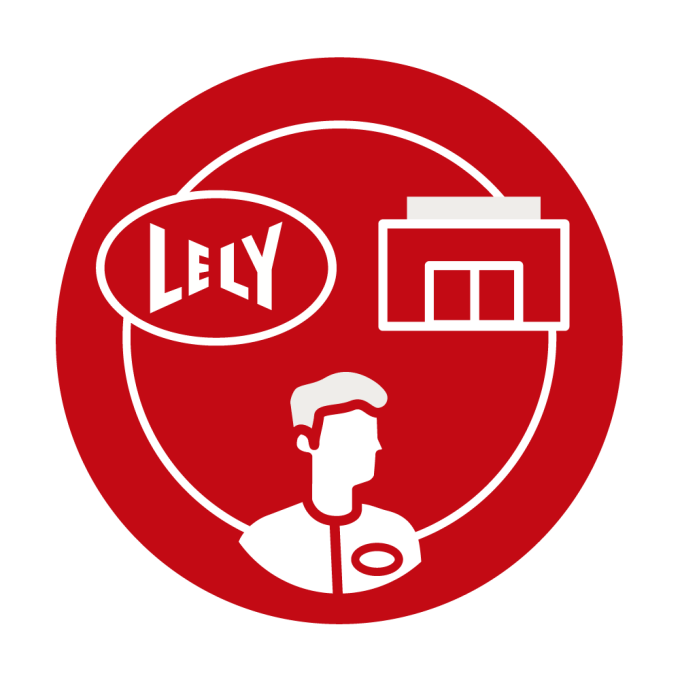
Create a strong supply chain
'As our product portfolio grows, what are our plans to make more parts interchangeable?'
Within Product Development (PD), we are focusing on efficiency to prevent double work. In other words, if multiple products – whether in the same product family or from different BTs – have a functional overlap, PD aims to design a common solution for the overlap. This solution is called a ‘common component’. Examples can include physical products like a common processor board (CPB) or common software functions like navigation.
In general, a common component reduces the number of spare parts and the associated costs, and improves product quality. While creating more common components is not a goal in itself, it will probably happen increasingly often as our product portfolio grows.
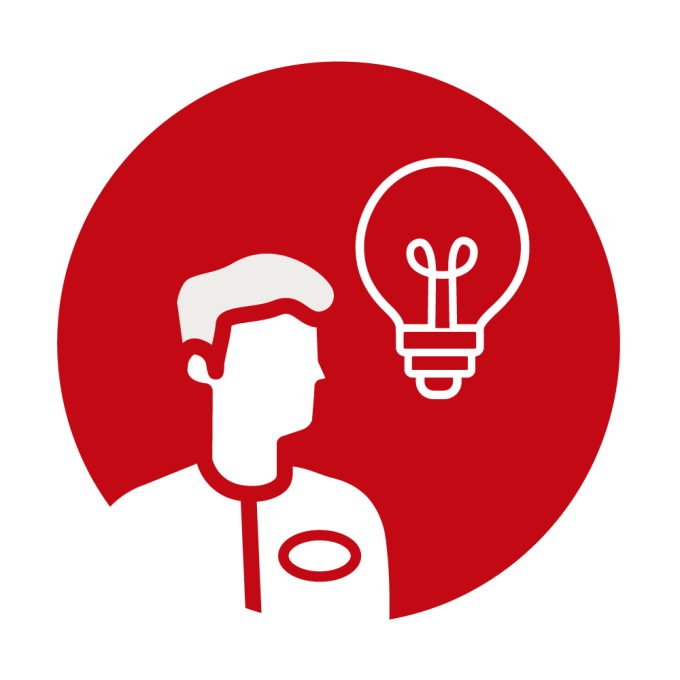
Innovate for the future of farming
'What do we really mean by exploring alternative proteins?'
We want to build a sustainable business model for farmers and ourselves so that we can explore alternative proteins on a small scale. This will only be an additional stream, alongside cow-based milk production. The focus is on finding solutions that benefit dairy farmers worldwide, both financially and in other ways.
Currently, we are investigating the potential sources of alternative proteins and how such proteins could be cultivated on a dairy farm. To gain the relevant knowledge, we need answers to key questions, including: What can we learn from the experiences so far? What are the benefits? How can alternative proteins contribute to a brighter future for dairy farmers? What are the prerequisites for this? Which differences need to be considered based on farm type and/or geographical location?
What we do know is that alternative proteins must support our vision of making farmers’ lives more sustainable, profitable and enjoyable. Our focus remains primarily on the farmer and the future of farming, rather than on the consumer. We will share more information as soon as we have more insights.
Five questions on Impact30
Since we kicked off our new strategy in September, we have received plenty of questions. In this edition of Top 5, we highlight a question – and answer – for each of Impact30’s five strategic pillars. For more FAQs, check out the strategy page on OneLely Home.
TOP 5
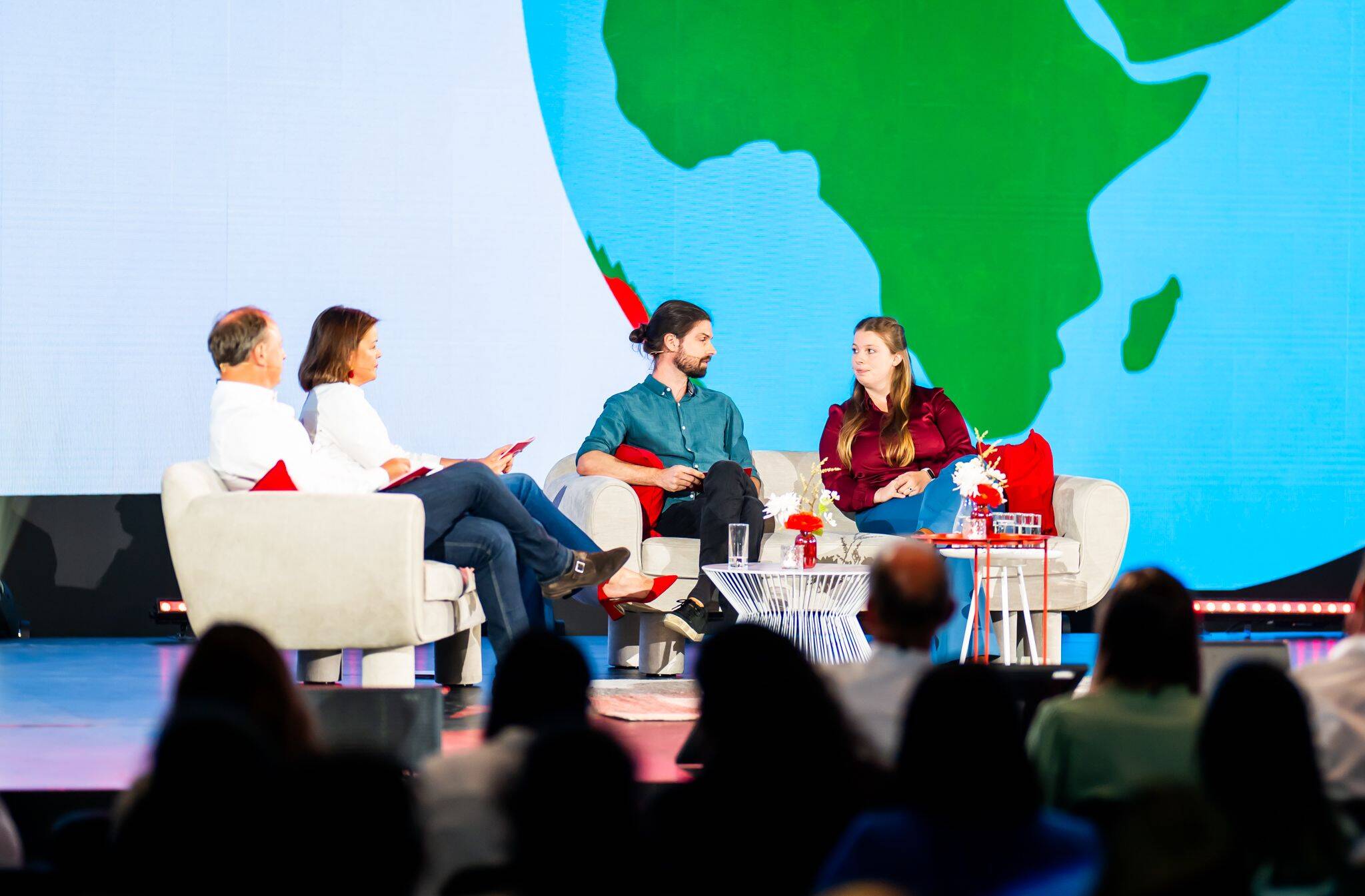

Develop a succesful global organisation
'How will ESG impact our work as a global organisation?'
ESG refers to a set of criteria used to evaluate a company’s impact on the Environment, its Social responsibility, and its Governance practices. ESG has gained traction globally, and the European Union has pioneered the implementation of several policies.
In recent years, Lely has focused on various ESG topics, including circular design, waste reduction, energy efficiency, and employee health. We are also working on specific ESG commitments and targets that will be launched in 2025.
These will have a significant impact across pretty much all our competences, departments and teams worldwide. Initially, we will ask for data from our Clusters and Centers so that we can make the relevant calculations. After analysing the findings, we will make suggestions and requests, such as to reduce CO2 emissions by sourcing green energy or installing solar panels. Additionally, data and activities related to employee health & safety will play a crucial role in the coming period.
Our customers will notice our focus on ESG as well, because we aim to reduce waste and stimulate reuse of materials, parts and whole goods.

Rosita Grootscholten
Corporate Communications Specialist, Lely International
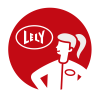

Danny de Kok
Project Manager IT, Lely International
Deliver a unique customer experience
'How can we maintain personal interactions with farmers and Lely Centers as digitalization and AI use grow?'
Data and AI help us to monitor performance, automate processes and provide personalised advice based on real-time insights. For example, these technological advancements allow farmers to make smarter decisions with less effort. Additionally, they help us to provide service more proactively, such as by predicting and preventing issues.
However, we want to emphasise that their use is designed to complement rather than replace our personal interactions. The personalised on-farm support provided by our technicians and advisors remains crucial. And by prioritising and using digitisation efficiently, our Lely Centers free up more time to provide the personal attention the farmer needs. It’s that unique customer service that stands out.

Realise a premium distribution channel
'What does omnichannel mean for our Lely Centers?'
Omnichannel refers to a seamless approach towards interacting with farmers, allowing them to choose how and when to engage with Lely – not just during working hours, but 24/7. Everything is centred around each farmer’s preferences, location and behaviour.
From the perspective of our Lely Centers, this gives farmers more control when ordering consumables, searching for information online or scheduling sales advice. This also improves efficiency for the Lely Centers themselves, allowing them to focus on proactively providing service and support where it is truly needed, while also gaining more insights into customers’ online activities.For example, if a farmer searches for a Juno online, the insights gained from that data can help the Lely Center to generate leads. An omnichannel approach will also help us to facilitate a balanced portfolio.

Kristian de Graaf
Financial Control & Analytics, Lely International
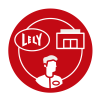

Thomas Nugent
Service Manager TSS, Cluster Atlantic


Gianluigi Ajelli
Manager DCD, Cluster SEET
Create a strong supply chain
'As our product portfolio grows, what are our plans to make more parts interchangeable?'
Within Product Development (PD), we are focusing on efficiency to prevent double work. In other words, if multiple products – whether in the same product family or from different BTs – have a functional overlap, PD aims to design a common solution for the overlap. This solution is called a ‘common component’. Examples can include physical products like a common processor board (CPB) or common software functions like navigation.
In general, a common component reduces the number of spare parts and the associated costs, and improves product quality. While creating more common components is not a goal in itself, it will probably happen increasingly often as our product portfolio grows.
Innovate for the future of farming
'What do we really mean by exploring alternative proteins?'
We want to build a sustainable business model for farmers and ourselves so that we can explore alternative proteins on a small scale. This will only be an additional stream, alongside cow-based milk production. The focus is on finding solutions that benefit dairy farmers worldwide, both financially and in other ways.
Currently, we are investigating the potential sources of alternative proteins and how such proteins could be cultivated on a dairy farm. To gain the relevant knowledge, we need answers to key questions, including: What can we learn from the experiences so far? What are the benefits? How can alternative proteins contribute to a brighter future for dairy farmers? What are the prerequisites for this? Which differences need to be considered based on farm type and/or geographical location?
What we do know is that alternative proteins must support our vision of making farmers’ lives more sustainable, profitable and enjoyable. Our focus remains primarily on the farmer and the future of farming, rather than on the consumer. We will share more information as soon as we have more insights.
Five questions on Impact30
We have received plenty of questions since we kicked off our new strategy in September. In this edition of Top 5, we highlight a question – and answer – for each of Impact30’s five strategic pillars. For more FAQs, check out the strategy page on OneLely Home.
TOP 5
